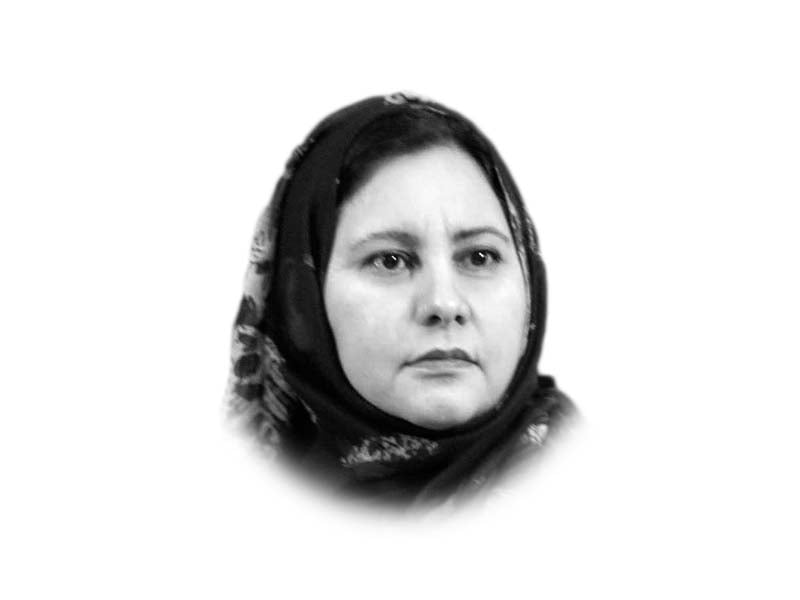
Reportedly, Prime Minister Khan and his delegation were just settling in their hotel rooms in Moscow, when before daybreak President Vladimir Putin announced “the beginning of an invasion” of Ukraine. Was the PM taken by surprise, and Putin deliberately timed his well-apprehended invasion plan at the arrival of a regional stakeholder? Or, were the ministries covertly informed, and both Putin and Khan had worked on an unpronounced policy alliance, and taken the opportunity as a show of power – a power that come with being friends of crucial regional players.
Indeed, Khan’s foreign policy layout has been one that has strengthened regionalism for the neighborhood. For the first time in decades the country’s outlook has changed from being an introvert, isolationist one to being an extrovert, inclusive one. As the world matures up to be multipolar, strong regionalism is the way to go, and strong regionalism requires alliances with those in close proximities, those that are likely to be traditional rivals, and for this a lot of poise and pragmatism are needed.
Two potentially emerging regional alliances that encompass us are either the China-Russia alliance or the Japan-India-US alliance. China being our traditional ally, to befriend an India-tilted Russia had been a challenge for Pakistan, especially after the bitterness of Russo-Afghan War. Nevertheless, the US invasion of Afghanistan slowly softened Russian stance towards Pakistan, until Russia started hosting peace talks between the Pakistan-backed Taliban and the US-backed Afghan government in 2018. Siding with the Taliban standpoint made Russia a party to the Taliban victory in the Afghan War, and the prospect of a regional alliance between China, Russia and Pakistan, with Afghanistan and Central Asia in their midst, became clearer and practical by the day.
At the same time, the US alliance with India, its only genuine partner in mainland Asia, kept getting India into more troubles: when the US enforced sanctions against Iran in 2018, India was quick to stop its oil trade with the country, hence throwing it out of Iran’s friend’s list for good; later in Trump’s Trade War, India kept making news by boycotting one Chinese product after another, emboldening China against it; in Afghanistan, India being a US stooge, never made ties with the Taliban; and long before all this, India had ditched Russia to join the US camp, right after they lost the Russo-Afghan War. Yet, in spite of all these bad choices, India was still clinging to its relations with Russia, especially in defence procurements. But all this had to change once Khan was found beside Putin on the eve of the Ukraine Invasion, leaving India almost completely isolated in mainland Asia. This shows how all our choices follow us in global politics.
Not voicing the Uyghur issue, and refusing to condemn Russia’s attack on Ukraine, may both be morally difficult choices, but in an extremely biased and unjust world order where many powerful states seem hell bent on strategically and economically isolating Pakistan, these choices were perhaps not difficult for the PM. They were not messages against the humanitarian cause, rather they were a message to the West to stop intimidating Pakistan and stop wishing that this region should never be strong and peaceful. And indeed, China and Russia both reciprocated in support of Pakistan once the ‘international conspiracy’ to get rid of Khan was exposed.
China announced that it would “help Pakistan protect its sovereignty, territorial integrity”, and Russia called it “another attempt of shameless US interference in the internal affairs of an independent state for its own selfish purposes”. And indeed, this was a blatant interference, an attack on the will of 228 million Pakistanis, an attack on the country’s sovereignty and an attack on democracy itself. This is how geopolitics swings from one global pole to another, and this is what defines who the global players are.
As for ‘international conspiracy’, it is an open secret how the US has been behind countless regime changes around the world; and even in the 21st century it has failed to culture itself otherwise. It should not be surprising if Biden’s assistant secretary of state Donald Lu would be behind regime change conspiracies, when Biden himself signaled his wish for Putin’s removal in Poland, saying “For God’s sake… this man cannot remain in power.” So, Lu has been up to the same kind of mischief. When Pakistan and Sri Lanka both abstained from voting against Russian aggression in Ukraine, Lu called the Sri Lankan ambassador the same morning asking him to vote in Russian condemnation, which he refused. And probably Lu embarked on the mission to topple both regimes from that day. In the same week, Lu had a meeting with the Pakistani envoy to US, Asad Majeed, wherein he warned that “if the vote of no-confidence did not succeed the country would have to face consequences.” The minutes of this meeting were received on March 7 and the no-confidence motion was filed on March 8.
And on March 16, protests against the Rajapaksa regime were launched in Sri Lanka. It is true that Sri Lanka has been going through economic plights like so many other countries since the 2008 global economic crisis, but the timing of the protests and the use of internet activism therein, especially from Sri Lankan diaspora in Australia, New Zealand, the US and the UK, raises the question of it being a colour revolution!
And it raises the question if Pakistan, a sovereign nation, with a democratically elected government, has also been a victim of a colour revolution. Had the foreign puppeteers fantasised they would puppet-run the parliament of Pakistan – imagine, puppets running the whole state of Pakistan!
Economic prosperity can be the end goal of any democratically elected government, but this goal cannot be superfluously achieved upon a compromised sovereignty and a slave mentality. Conversely, we can go for green energies and less consumerism if that helps us maintain our independence in foreign and internal policies. Democracy is the will of the people in a few hands and it is the right and responsibility of the people to ensure who those few hands are and what handshakes they are making.
Published in The Express Tribune, April 8th, 2022.
Like Opinion & Editorial on Facebook, follow @ETOpEd on Twitter to receive all updates on all our daily pieces.




1732263441-0/BeFunky-collage-(81)1732263441-0-165x106.webp)
1732263755-0/musk-(3)1732263755-0-165x106.webp)







COMMENTS (3)
Comments are moderated and generally will be posted if they are on-topic and not abusive.
For more information, please see our Comments FAQ